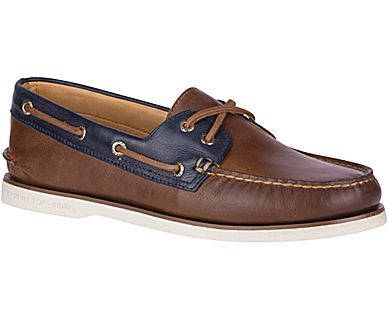If you’re looking to lose weight, you should probably know that cardio is not the only thing you have to do. It’s not even the most important thing.
You can lose weight without doing any cardio at all — just by restricting your calories and eating a lot of protein and fat. But if you want to lose weight without losing muscle mass, or without suffering from hunger pangs and fatigue, then you’ll need to hit the gym. And if you want to build muscle as well as burn fat, then you’ll need to do more than just cardio.
But what kind of cardio?
The best type of cardio for weight loss is high-intensity interval training (HIIT). You’ve probably heard about HIIT before — it’s a form of exercise where you alternate between high-intensity intervals with low-intensity recovery periods, usually for 20 minutes at a time or less. This style of training has been shown to be superior for fat loss over steady-state cardio (where you’re exercising at a moderate pace for a long period) because it causes more afterburn — meaning that after your workout ends, your body continues burning calories even after stopping exercise!
What The Best Cardio Workout For Weight Loss

10 Best Cardio Exercises for Weight Loss
If you’re like most guys, you do cardio exercises to help you stay lean and show off the muscle gains you get from hitting the weights, aka “the usual workout routine.” And there’s absolutely nothing wrong with that.
But when it comes to which type of cardio workout is best for burning fat and spiking your heart rate, you have to decide which lean body type you’re going for.
“If you train like a distance runner, you’ll get a distance runner’s body: little muscle, very lean from lots of miles logged at relatively slower paces. If you train like a sprinter—short, high-intensity workouts—you’ll get a sprinter’s body with muscle growth and fat loss,” says Chris Ryan, C.S.C.S., a physical trainer and the founder of Chris Ryan Fitness.
Here’s something we can all agree on: Intensity is paramount. As the intensity rises, more calories get burned. That’s why high-intensity interval workouts are a great choice for getting shredded while maintaining (or even gaining) muscle.
Here are the best types of cardio to help you lose weight faster and get results sooner. Don’t worry if you’re not a runner. High intensity cardio comes in all different forms (think mountain climbers, squat jump, and jumping jacks), and each is guaranteed to get your heart pumping.
1. Sprinting
Sprints outside, on a treadmill, or even up stairs or bleachers are great to burn the most calories in the least amount of time. No equipment is really necessary and you can do these workouts just about anywhere.
“Sprinting is simple, and it burns huge amounts of calories—when looking to shed weight, it tops the list. While steady-state running or jogging burns plenty of calories, increasing your speed and intensity will really pay off,” says Adams.”
The best part? Sprinting leaves no muscle unscathed. “If your destination is Six Pack City, then go full-steam ahead with your sprints,” Ryan says.
The best way to do it:
- If you’re outside on a track, try sprinting a lap and then jog a lap.
- Keep repeating this for as long as you can.
- If you’re on a treadmill, do an all-out sprint for 20-30 seconds, then slow the belt down and jog for a minute or so before repeating.
- At a stadium or flights of stairs? Run up to the top as fast as you can, then jog or walk down.
- It’s never a good idea to run down stairs or bleachers, so use the downward portion for your active rest periods. Really lift those knees high to get your glutes some great action and build sprinter power in no time.
2. High-intensity Interval Training

HIIT gives you a well-rounded workout while burning a ton of fat and calories.
“HIIT workouts can vary greatly, from 500 calories per hour to 1500-plus calories per hour for an 180-lb man. HIIT workouts are great because of the intensity of each exercise as well as the variation of exercises and reps,” says Ryan.
Pairing any body-weight movement with a weighted movement and a traditional cardio element and you have the perfect recipe for an amazing fat-burner.
The best way to do it:
- Look for Tabata, HIIT, high-impact aerobic, and vigorous interval classes using weights at your local gym.
- No gym or class? Check out these 10 HIIT workouts to get shredded.
- Be sure to keep rest periods to a minimum to really maximize your efforts.

3. Rowing
Take a look at any collegiate rower’s body and you’ll surely be envious of their athletic, v-cut frame.
“Rowing makes the list because it is a great way to incorporate the upper and lower body in a relatively low-stress manner on your joints and ligaments. It’s also a great way to work the posterior chain,” explains Ryan.
Following a moderate pace on the rowing machine can burn upwards of 800 calories per hour for an 180-lb guy, but increasing the intensity with short sprints will get that number well over 1,000 calories per hour very quickly.
The best way to do it:
- Keep your chest up and use your entire body when rowing.
- But don’t let your arms do all the work—try using your legs to get the motion going.
- Set a clock for 20 minutes, row 250 meters as fast as possible, rest for one minute and then repeat for the entire 20 minutes.
4. Swimming
Swimming is a total-body workout that starts the second you begin treading water.
“You’re essentially fighting gravity, so your muscles are working extra hard to keep you afloat without getting a break until you’re out of the water. In fact, with just one minute of fast swimming, you’ll burn 14 calories.” says Boudro.
“Remember that the type of stroke makes a difference. A breast stroke burns fewer calories than the butterfly, so be sure to incorporate different strokes in your training,” Adams says.
The best way to do it:
- An easy way to burn calories in the water is to simply tread water.
- You can do a few laps, then have a water-treading interval, then repeat.
- If you’re able to swim at a high level, then swim as fast as you can for as long as possible.
- If you aren’t such a strong swimmer, then do swimming intervals: Swim as fast as you can down the length of the pool and back, then swim slower for the same distance.
- Alternate these intervals for the duration of your workout.
5. Cycling
Stationary bikes are a mainstay at most gyms, but there’s a reason most people aren’t waiting in line to use them.
“You must be willing to go at an intense rate. So no pedaling while scrolling through your smartphone. During a vigorous indoor cycling or spin class, the average 180-lb. man may burn close to 1,150 calories per hour, while a more moderate ride will only burn half that amount at about 675 calories per hour,” says Adams.
The best way to do it:
- Doing intervals on a stationary bike is a great way to maximize your calorie burn in minimum time.
- Keep the intensity really high on the intervals for a couple of minutes, then slow down for a minute or so, continually repeating these intervals for as long as you can.
6. Kettlebells
While a kettlebell workout isn’t technically a cardio-only exercise, its calorie-burning effects are too high to keep off this list.
“Kettlebell workouts combine the best of both worlds: strength training and cardio,” says Adams. “In addition, a recent study on the calorie-burning effects of this type of workout puts it at around 20 calories per minute. This total takes into account not only the aerobic calorie expenditure, but also the anaerobic calories burned. Very few cardio exercises build muscle—this is one of the exceptions. You can expect to burn around 400-600 calories in just 30 minutes,” says Adams.
The best way to do it:
- If you can do a particular movement for 40-50 reps, chances are your kettlebell isn’t heavy enough. Don’t go too light, and don’t go too heavy either.
- Some of the best ways to do a kettlebell workout to maximize calorie burning is to do a movement for 30-40 seconds, rest for 20-30 seconds, then repeat the movement or cycle through several movements.
- Set your timer for 30 minutes and see how many rounds you can get.
7. Jumping Rope
There’s a reason the jump rope is a mainstay in a boxer’s training regimen: it’s cheap, easy to do, increases foot speed, and burns a ton of calories. Think of your favorite boxers, wrestlers, and fighters—they all jump rope.
“Jumping rope not only enhances your footwork, shoulder strength, and coordination, but also simulates sprinting, allowing you to burn as much as 500 calories in just 30 minutes,” says Ben Boudro, C.S.C.S., owner of Xceleration Fitness in Auburn Hills, MI..
The best way to do it:
- While very few people can jump rope for 30 minutes straight, it’s best to do intervals of fast and slow jumps to keep you going.
- Can’t do that very well? Jump as fast as you can for one minute, then rest for 20-30 seconds. Repeat until you’re done.
- If you’re a frequent traveler, throw a jump rope in your suitcase for a great workout without ever having to leave the hotel room.
8. Stair Climber
A stair climber offers another popular way to burn fat and calories, but only about 500-600 calories for an 180-lb. man at a moderate pace.
“Because of the higher leg lift involved, climbing stairs uses significantly more muscles than just walking—strengthening your legs in a functional way,” says Adams.
Stair climbers can put a lot of weight and pressure on your joints, so it can be difficult for people with bad knees.
The best way to do it:
- “Try incorporating 90% or more effort on the stair climber for 30 seconds with a one- to two-minute ‘active recovery,’ like a farmer carrying medium-weight kettlebells or dumbbells to incorporate upper body and core strength,” says Ryan.
- Doing 10-15 rounds of this workout will spice up your workout way above the normal range of calories burned.
9. Running (Moderate Pace)
Running at a steady, moderate pace is a sure way to burn fat and calories, but it’s not the most economical way to build or even maintain muscle.
“By the numbers, a 180-lb. man can burn about 940 calories in an hour while running an 8.5-minute-per-mile pace—or 7 mph on the treadmill for an hour. This would be a nice, long run to do every couple of weeks to keep up your aerobic capacity, but it involves a lot of mileage for the time and effort put in.” says Ryan.
The cons:
Running at this pace can also break down muscle and subject your body to lots of pounding.
“If you’re looking to add in a long run every once in a while, by all means do so, just opt for trails or softer surfaces than cement and blacktop,” he says.
The best way to do it:
- If you’re running on a treadmill, set the incline to 2-3% to simulate running outside. “This burns more calories and may actually be easier on the knees.” suggests Adams.
- If running feels boring for you, try different routes in your neighborhood or join a local running club. Running with a partner or group can make the miles go by much easier.
10. Elliptical Machines
These machines were originally designed to minimize impact on the knees and hips, but still allow a great workout.
“Because the impact is quite low, the calorie-burning effect isn’t as great as other cardio machines, like treadmills and stairmasters. However, the elliptical machine can be an excellent way to burn calories without wearing out your joints.” Explains Roger Adams, Ph.D., an expert in nutrition and weight loss.
While the average weight is 180 pounds, a man may only burn close to 500-600 calories per hour if he’s going at an above moderate pace, you can get even more out of it by switching up the intensity, speed, and resistance.
The best way to do it:
- Add a high incline to really activate more leg muscles, especially your glutes. “This movement can simulate stair-climbing without the impact. Lower the incline and increase the resistance and you have a cross-country skiing feel to your workout that really works your quads.” says Adams.
- As with the stepmill, don’t hold on to the handles or rails too tightly as this can reduce your efforts and lead to shoulder or wrist pain.



